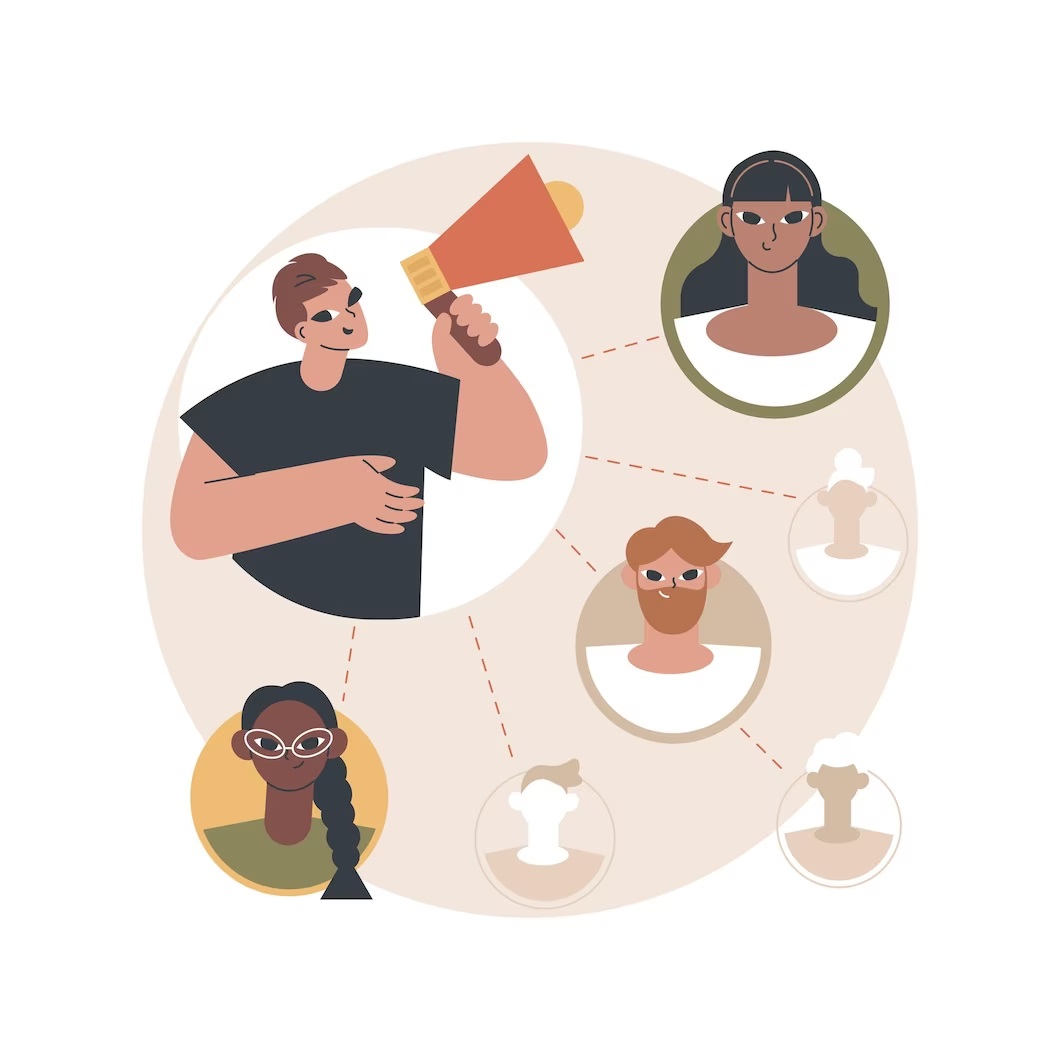The Importance of Assertiveness in Flirting and Relationships
Assertiveness - The Foundation of Flirting and Relationships
Assertiveness is a trait that is essential in thriving relationships, especially in the initial stages of flirting. Flirting can be an intimidating process, and if you're not confident in yourself and your desires, you may struggle to connect with potential partners. Assertiveness allows you to express your thoughts and feelings in a clear and direct manner, which can be attractive to others. When flirting, showing your assertiveness can be as simple as making eye contact, initiating conversation, or asking for a phone number. It's essential to remember that being assertive is not the same thing as being aggressive. It's important to respect people's boundaries and listen to their responses to your flirting to determine whether they are reciprocating your interest.
Assertiveness in relationships can also prevent miscommunications or misunderstandings that can often arise when two people have different needs or expectations. Assertiveness involves being open and honest about your feelings and desires and communicating them effectively. This means that both partners are clear about what they want and need from each other, which can lead to a more satisfying and fulfilling relationship. Conflict can also be resolved more easily when both parties can express themselves honestly and respectfully. It's essential to remember that communication is key in any relationship, and assertiveness can be a powerful tool to improve communication.
In sum, assertiveness is a crucial foundation for successful flirting and relationships. By expressing yourself clearly and confidently, you can demonstrate your interest in potential partners and build connections that may lead to fulfilling relationships. In established relationships, assertiveness can prevent miscommunications and conflicts by ensuring that both parties are clear about their expectations and desires. By embracing your assertiveness and practicing effective communication, you can build strong and healthy relationships that are based on mutual respect and understanding.
Why Assertiveness Is a Crucial Quality for a Positive Relationship
Assertiveness is an essential quality that plays a significant role in building a positive relationship. Being assertive means communicating with confidence, expressing your feelings and opinions in a direct and clear manner while respecting others' perspectives. It is about standing up for yourself, setting boundaries, and holding people accountable for their actions. In relationships, whether romantic or friendly, it is vital to establish healthy boundaries and communicate them assertively. Being assertive helps you avoid conflicts and misunderstandings, fosters mutual respect, and enhances your self-esteem and confidence.
Assertiveness helps you avoid being a doormat in your relationships. When you are passive in your communication, you create an imbalance of power, and others may take advantage of you. For instance, if you constantly agree to go along with plans you don't enjoy or put up with inappropriate behavior, you are sending a message that your thoughts and feelings don't matter. This can lead to resentment, frustration, and damage your relationship in the long run. Therefore, practicing assertiveness is necessary to establish a healthy dynamic where both parties feel heard, valued, and respected.
Assertiveness is especially important when conflicts arise in relationships. Instead of avoiding or succumbing to them, being assertive allows you to address issues more effectively. It enables you to express your feelings and concerns without attacking or blaming the other person, which can result in more significant problems. Assertive communication encourages openness, honesty, and collaboration, which can lead to better problem-solving and a more satisfying relationship. In conclusion, assertiveness is a vital quality for building and maintaining positive relationships. By being assertive, you can express yourself with confidence, establish healthy boundaries, and resolve conflicts effectively, creating a more fulfilling and harmonious relationship.
Develop Assertiveness in Flirting and Relationships
Assertiveness is a key element in flirting and relationships. Being assertive means being clear and direct about your intentions and desires, while still respecting the other person's boundaries and feelings. Assertive flirting can help you attract the attention of someone you're interested in, and assertive communication can help you build a strong and healthy relationship.
One way to develop assertiveness in flirting and relationships is to practice good communication skills. This means actively listening to the other person and responding in a way that shows you understand and respect their point of view. It also means being honest and open about your own feelings and desires, without resorting to manipulation, guilt trips, or other forms of emotional manipulation that can damage relationships in the long run.
Another way to develop assertiveness in flirting and relationships is to practice self-confidence and self-respect. This involves knowing your own worth and value, and not settling for less than you deserve in a relationship. It also means setting clear boundaries and expectations for how you want to be treated, and standing up for yourself if those boundaries are crossed. By being confident and assertive in your interactions, you'll be more attractive to potential partners and more likely to build strong and healthy relationships in the future.
The Benefits of Being Assertive in Relationships
Being assertive in relationships can have numerous benefits. Firstly, it allows you to express your needs and boundaries without being aggressive or submissive. This means that you are able to communicate clearly with your partner without attacking them or allowing them to take advantage of you. It also means that you are more likely to get your needs met and feel respected in your relationship.
Secondly, being assertive helps to build trust and intimacy. When you are able to communicate effectively with your partner, you are more likely to form a deeper understanding of each other's wants and needs. This can help to create a stronger emotional connection and a more fulfilling relationship. It is important to note that being assertive does not mean being confrontational or argumentative. Instead, it means speaking your truth with confidence and respect for your partner.
Finally, being assertive can help to build self-esteem and confidence. When you are able to stand up for yourself and communicate your needs effectively, you are likely to feel more confident and self-assured. This can have a positive impact on your overall mental health and well-being. It is important to remember that being assertive is a skill that can be developed over time. With practice, you can learn to communicate your needs and boundaries in a clear and confident manner, which can have a transformative effect on your relationships and your life.
Effective Communication in Flirting and Relationships
Effective communication is an essential element in establishing and maintaining successful relationships. When it comes to flirting and dating, clear communication can set the foundation for a strong connection. It's important to convey your intentions and feelings honestly and openly. This involves actively listening to the other person and being mindful of their reactions. By doing so, you can gain a better understanding of their expectations and desires.
Nonverbal communication is just as important as verbal communication when it comes to building connections. Your body language, eye contact, and tone of voice all play a role in expressing your interest and attraction. Pay attention to the other person's nonverbal cues as well, as they can give you insight into their level of interest and comfort. By being aware of your own body language and adjusting it accordingly, you can create an atmosphere of openness and trust.
In a relationship, effective communication means being able to express your needs, wants, and concerns clearly and respectfully. It also involves actively listening to your partner and validating their feelings. When conflicts arise, communication can be a powerful tool in finding solutions and strengthening the relationship. By approaching difficult conversations with empathy and compassion, you can build a deeper connection and create a sense of mutual understanding.
The Unpredictability of Flirting and Relationships
Flirting has been a staple in dating and relationships, but it can also be quite unpredictable. At one moment, you think you're hitting it off with someone and the next, they're not interested anymore. This unpredictability can make it difficult to gauge someone's intentions, and it can lead to misunderstandings and hurt feelings. However, it's also part of what makes flirting and relationships exciting. You never know who you might meet or what connections you might form, so it's important to stay open-minded and enjoy the ride.
Another factor that adds to the unpredictability of flirting is the ambiguity of it all. It can be hard to tell if someone is just being friendly or if they're truly interested in you. This is where body language and context come into play. Paying attention to someone's movements, tone of voice, and facial expressions can help you decipher whether or not they're flirting with you. Additionally, taking into account where you are and what you're doing can give you clues as to whether or not someone is interested. For example, if you're at a romantic restaurant with someone who keeps making eye contact and leaning in close, it's more likely that they're flirting than if they simply smiled at you in passing on the street.
All of this unpredictability can make it difficult to form long-lasting relationships, but it's important to remember that every interaction is a learning experience. Even if things don't work out with one person, you can take what you learned from that experience and apply it to future relationships. Practice makes perfect when it comes to flirting and relationships, so don't be afraid to put yourself out there and try new things. Who knows? You might just find someone who is equally as excited about flirting and relationships as you are.
What Exactly Is Considered Assertiveness?
Assertiveness is often confused with aggressiveness or passivity. However, it is a distinct trait that involves communication skills, confidence, and the ability to stand up for oneself or others without violating the rights of others. People who are assertive are clear and direct in their communication, express their needs and desires, say “no” when necessary, use “I” statements, and listen actively. They also maintain eye contact, speak confidently, and use appropriate body language to convey their message. Assertiveness is a valuable trait that can help people achieve their goals, build stronger relationships, and avoid conflicts.
Assertiveness can be learned and practiced by anyone, regardless of their personality or background. It involves learning new skills, changing habits, and developing a more positive attitude towards oneself and others. Some tips for becoming more assertive include: identifying one’s goals and values, setting boundaries, using assertive language, practicing active listening, responding calmly to criticism or feedback, and seeking support from others. By becoming more assertive, individuals can improve their self-esteem, reduce stress, and achieve greater satisfaction in their personal and professional lives.
Assertiveness is not about being aggressive, rude, or disrespectful. It is a way of communicating that respects both oneself and others. People who are assertive do not attack, blame, or criticize others. Instead, they focus on the behavior, situation, or issue at hand, and express their feelings and needs in a clear and respectful manner. They also acknowledge and validate the feelings and needs of others, and look for solutions that benefit everyone involved. By being assertive, individuals can improve their relationships, enhance their communication skills, and create a more positive and supportive environment for themselves and others.
Assertiveness versus Passiveness
Assertiveness and passiveness are two opposite ends of a spectrum when it comes to communication and behavior. People who are assertive are confident, clear, and direct in expressing their thoughts and feelings. They stand up for themselves and their rights, while also respecting others' boundaries. On the other hand, passiveness can be seen as a lack of assertiveness or confidence. Passive individuals often have difficulty expressing their needs or opinions and may default to pleasing others or avoiding conflict. While both assertiveness and passiveness have their pros and cons, finding a balance between the two can lead to healthier communication and relationships.
Passive communication can lead to a lack of clarity and misunderstandings. If you avoid expressing your needs or opinions, people may not know what you want or how you feel. This can lead to frustration, resentment, or even conflict down the road. In contrast, assertive communication can help you get your point across more clearly and effectively. By using confident and direct language, you can express what you need or want without being aggressive or disrespectful. This can lead to more successful negotiations, stronger relationships, and a greater sense of self-respect and confidence.
However, being assertive does not mean you have to be aggressive or confrontational. Assertiveness can be practiced in a respectful and compassionate way that takes into account the needs and feelings of others. By using 'I' statements, staying calm and open to feedback, and being willing to compromise, you can stand up for yourself while also valuing the relationships you have with others. In contrast, being passive can lead you to feel like a doormat, constantly giving in without standing up for yourself. By practicing assertiveness, you can take control of your life and your relationships, leading to greater self-esteem and a sense of empowerment.
The Difference Between Being Passive and Being Assertive
Passivity and assertiveness are two different ways of communicating with others. Being passive means not asserting oneself or speaking up for one's own needs and opinions. Being assertive, on the other hand, means expressing oneself confidently and standing up for oneself while also considering the needs and opinions of others.
The key difference between being passive and being assertive lies in how one tackles situations. In passive behavior, one may often yield to others, avoid confrontation, and keep negative feelings bottled up. In contrast, assertive behavior involves open communication, being respectful of others, and setting healthy boundaries to assert one's own needs and opinions.
Being passive or assertive can significantly impact relationships and lead to different outcomes. Passive behavior may lead to others taking advantage of an individual or not taking their opinions into account. On the other hand, assertive behavior can lead to mutual respect, stronger relationships, and better overall outcomes. It is important to find a balance between the two and strike a healthy mix of assertiveness and respectfulness in communication with others.
What Holds People Back From Being Assertive?
Assertiveness is a vital skill that can make a huge difference not only in one's personal life but also in their professional life. It entails communicating one's thoughts, feelings, and beliefs confidently and openly while being receptive to the thoughts and feelings of others. Despite its importance, many people struggle to be assertive. The reasons for this can be diverse and complex, ranging from fear of rejection to low self-esteem.
Fear of rejection is one of the primary reasons that keep people from being assertive. They fear that expressing their opinions, asking for what they want, or saying no to requests might lead to rejection or conflict. This fear can stem from past experiences where they were rejected or invalidated for expressing themselves. In such cases, individuals may not feel comfortable being assertive because of the discomfort they associate with what might happen when they voice their thoughts and feelings.
Another reason that holds people back from being assertive is low self-esteem. If individuals don't believe in their capabilities, they may struggle to express themselves confidently. They may doubt that their opinions matter, their feelings are valid, or their needs deserve attention. When people lack confidence in these areas, they may hold back and be hesitant to assert themselves, afraid they will either say the wrong thing or be met with ridicule or scorn. Low self-esteem can create a vicious circle where the more people hold back, the less confident they feel in their abilities, leading to further reluctance to express themselves.
Tips to Develop Assertiveness in Relationships
Assertiveness is a skill that allows individuals to communicate with others in a clear, direct and respectful manner. Developing assertiveness in relationships can be beneficial as it can help individuals express their needs, opinions and feelings in a way that is productive and healthy. However, it is important to note that developing assertiveness can be a challenging and lengthy process that requires consistent practice.
To develop assertiveness in relationships, individuals can start by identifying their needs, opinions and feelings. This includes being aware of their emotions and understanding how their behaviour and communication style may affect others. It is also important to practice active listening, which involves listening to others without interrupting or judging them.
Another important tip to develop assertiveness in relationships is to practice setting boundaries. This means being clear about what is and is not acceptable in a relationship and being willing to communicate this to others. It is important to communicate boundaries in a respectful manner and to be open to compromise if necessary. Developing assertiveness in relationships can take time, but with practice and patience, individuals can communicate with others in a way that is respectful, clear and effective.
Consequences of Not Being Assertive
Not being assertive can bring about numerous negative consequences in both personal and professional relationships. People who lack assertiveness tend to struggle with setting boundaries and expressing their own needs and opinions. As a result, they may find themselves feeling frustrated or resentful when others don't respect their wishes. They may also struggle to say no or stand up for themselves, leading to a lack of control over their own lives.
Being non-assertive can also have an impact on one's career. Leaders who are unable to effectively communicate their expectations or delegate tasks may find themselves with a disengaged and unproductive team. Additionally, employees who are too passive may miss out on opportunities for career advancement or salary increases because they don't speak up for themselves. By not being assertive, one may find themselves being constantly overlooked and undervalued in their workplace.
In addition to negatively impacting personal and professional relationships, not being assertive can also harm one's own emotional and mental well-being. People who struggle with assertiveness tend to experience higher levels of anxiety and stress, as they may feel powerless or helpless in certain situations. They may also deal with low self-esteem and lack confidence in their abilities. By learning to assert oneself and communicate effectively, one can greatly improve their overall quality of life.
Developing Assertiveness - The Path to Positive Flirting and Relationships
Assertiveness is a key trait that is essential for communication and building relationships. It is a delicate balance between being confident, self-assured, and respectful of others. Developing assertiveness is all about learning how to express yourself in a clear and concise manner while also being able to listen and understand the perspectives of others. When it comes to flirting and relationships, assertiveness is vital to ensure that both partners are on the same page, and each person's needs and desires are met. Without assertiveness, one partner may feel left out and disrespected, leading to misunderstandings and conflicts.
Assertiveness can be developed through practice and self-reflection. It is important to recognize your own feelings and to express them in a calm and clear manner. This will help you communicate your needs and desires without coming across as aggressive or manipulative. Additionally, it is essential to listen actively to your partner's needs and desires to establish mutual understanding and respect. By developing assertiveness, you will be able to avoid misunderstandings and conflicts in your relationships and ensure that both partners are happy and satisfied.
In conclusion, developing assertiveness is a crucial component of positive flirting and relationships. It allows you to communicate your needs and desires effectively, while also respecting the perspectives of others. By practicing assertiveness, you will be able to establish mutual understanding and respect, leading to a healthy and fulfilling relationship. So take the time to reflect on your communication style and develop your assertiveness skills, and watch your relationships thrive!



